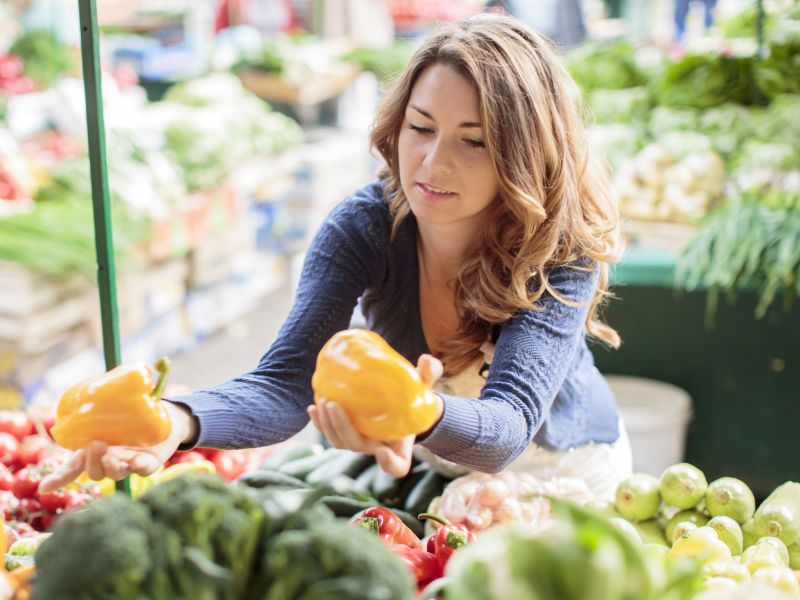Have Kids, Buy More Produce?

TUESDAY, July 9, 2019 (HealthDay News) -- Could having kids prompt you to eat healthier foods?
Apparently so, a new study suggests.
Americans buy more fruits and vegetables after they become parents, researchers found.
"Although adult food preferences are considered relatively stable, major life events such as becoming parents may serve as a cue to behavior change," explained study author Betsy Cliff, a doctoral candidate at the University of Michigan's School of Public Health.
In the study, researchers looked at just over 500 U.S. households where shopping habits were tracked as part of an ongoing consumer study. The previously childless households had children between 2007 and 2015.
On average, the proportion of a household's grocery budget spent on fresh produce rose from an average of 10% before having children to 12% after having children.
However, the increase was limited to households with an income greater than 185% of the U.S. federal poverty level (about $39,000 for a family of three in 2019).
Among families that bought more fresh produce after having children, the purchase increases were greater for fruits than for vegetables.
There was no change in purchases of canned, frozen or other storage types of produce after children.
The findings, which did not prove that having kids actually causes a jump in produce consumption, were published in the July/August issue of the Journal of Nutrition Education and Behavior.
"Increased purchasing by higher-income households suggests further support is needed to help low-income new parents increase produce as a part of their families' diet," Cliff said in a journal news release.
The factors that led to more spending on produce after having children were not examined in the study, so it's not known if the change in produce spending was due to an increase in the quality or in the amount of produce, the researchers said.
They also noted that the study did not include food eaten outside of the home and that the price of produce didn't reflect any discounts from vouchers or coupons.
More information
The U.S. Department of Agriculture offers tips on smart shopping for fruits and vegetables.

The news stories provided in Health News and our Health-E News Newsletter are a service of the nationally syndicated HealthDay® news and information company. Stories refer to national trends and breaking health news, and are not necessarily indicative of or always supported by our facility and providers. This information is provided for informational and educational purposes only, and is not intended to be a substitute for medical advice, diagnosis, or treatment.

